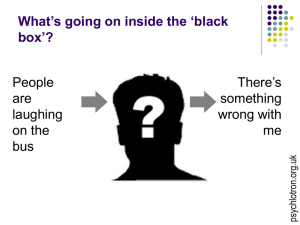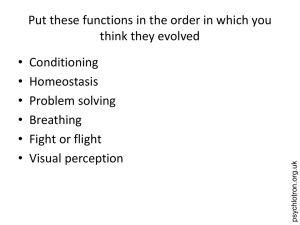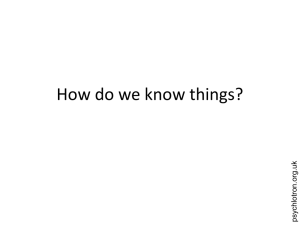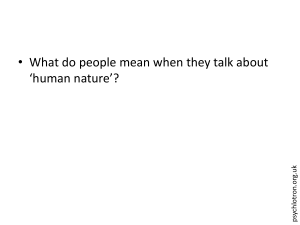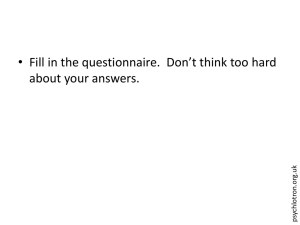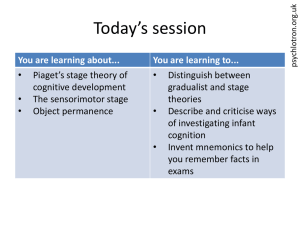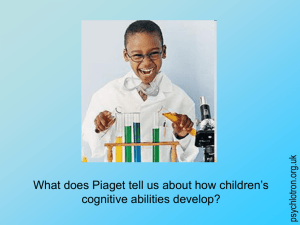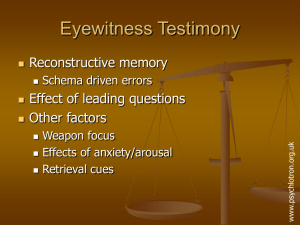Schizophrenia
advertisement
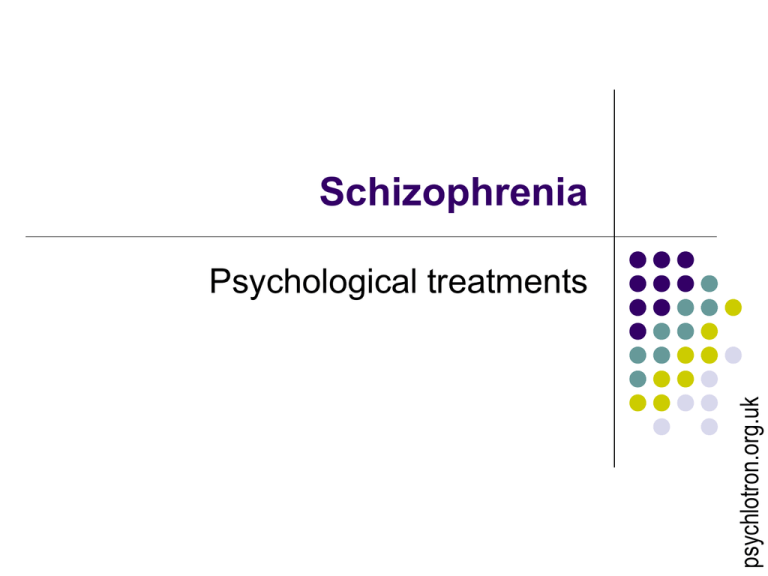
Schizophrenia psychlotron.org.uk Psychological treatments Treating schizophrenia Non-drug-based therapies Behavioural Psychodynamic Cognitive-behavioural Family therapy psychlotron.org.uk Behavioural therapies Reinforcing coherent/non-delusional speech Some success e.g. Nydegger (1972) - apparent reduction in hallucinations, delusions May be that patients learn not to talk about symptoms rather than symptoms actually reduced Results do not generalise well to non-clinical situations psychlotron.org.uk Behavioural therapies Token economies Early successes, esp. with negative symptoms May be due to better organisation/more positive staff behaviour, not reinforcement Changes may not last Ethical/human rights problems psychlotron.org.uk Psychodynamic therapies Traditional psychoanalysis not likely to be effective Rosen (1946) suggested ‘direct analysis’ involving: Brutal confrontation of patient’s problems Regression to childhood Therapist becomes a substitute parent/nurturer psychlotron.org.uk Psychodynamic therapies Success claimed by Rosen and others Drake & Sederer (1986) suggest some therapies actually harmful esp. when they involve: A close relationship Regression High levels of emotionality These lead to longer hospitalisation & worsening of symptoms psychlotron.org.uk Cognitive therapies CBT strategies to challenge & help modify delusory beliefs Identify delusions Challenge evidence on which delusions are based Design ‘experiments’ to test reality of this evidence Chadwick & Lowe (1993) – significant reductions in delusions in 10 out of 12 patients psychlotron.org.uk Cognitive therapies Normalising strategies where patient is taught to understand the nature of schiz. symptoms Challenge ‘catastrophising’ beliefs about schizophrenia Help patient feel that symptoms are understandable and ‘normal’ Helps 70% of patients although other 30% may deteriorate (Kingdon & Turkington, 1996) psychlotron.org.uk Family therapies Aimed at reducing ‘expressed emotion’ in the family environment through: reducing negative interactions Increasing understanding of schiz. symptoms Tackling feelings of guilt & anxiety Hoped to prevent relapse in patients following release psychlotron.org.uk Family therapy Some success: Lower relapse rates compared with individual therapy (12% vs. 50%; Falloon et al, 1985) As effective as social skills training (both 20% relapse) but most effective when both combined (<10% relapse rate; Hogarty et al, 1986) Follow-up data suggest that relapse is delayed, not prevented psychlotron.org.uk
